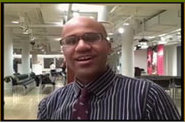Why You Should Care About Real Hate Crimes
 Based on all the information as of today, Jussie Smollett is trash.
Based on all the information as of today, Jussie Smollett is trash.
I have been closely following the curious case of the Empire actor. Smollett, who is black and openly gay, claims that he was attacked in what is being called a hate crime. According to him, while he was out getting food at a local Subway in Chicago during the polar vortex at 2 AM a couple of weeks ago, two men assaulted him with a noose and bleach and screamed: “This is MAGA country.”
At first, like most people, I was angered by his alleged attack, but when I started thinking more about the incident, it began to make no sense to me. Then I started seeing YouTube videos here and here by gay, black men who openly questioned his narrative. Then I heard Smollett was going to be interviewed by Robin Roberts, and I thought I would finally get the story straight from the victim. I really wanted to give the guy the benefit of the doubt. But after viewing the interview, I was more confused than before. There were no suspects, no witnesses, no video surveillance, and no credible evidence. Smollett’s version of the story that he wants us to believe defies basic logic and common sense. Then the whole story started to fall apart over the weekend with the arrest of the two Nigerian brothers.
I really don’t want to believe someone would make up such a story. Making up hate crimes in these times not only emboldens Trump supporters, but it also undermines real hate victims. The next time a person of color or a gay person who is not as rich and famous as Smollett is really assaulted, they might not be taken seriously.
If Smollett did lie about this incident, it shows that he is a psychopath who really doesn’t care about black and LGBT people, and who doesn’t mind putting them in harm’s way when it is convenient for him. With this said, just because Smollett doesn’t care about real hate crime victims, doesn’t mean we shouldn’t.
According to a new Human Rights Campaign report, 2019 Black and African-American LGBTQ Youth Report, 30 percent of black LGBTQ youth have been physically threatened because of their LGBTQ identity, including 41 percent of black transgender and gender non-conforming kids. 2018 was one of the deadliest years for transgender people, especially trans women of color.
I remember a couple of years ago I was watching a TV program about cold cases. There was one segment about this black woman in Louisiana (or Mississippi… I don’t remember) who was found dead in a shallow ditch outside a small town after someone complained about a foul smell. The police figured the woman had been in the ditch for at least two weeks based on the state of her decomposed body. They did an autopsy and found out quickly that she was biologically born a male, based on the typical scares of someone who has had gender reassignment. They couldn’t identify the body and the woman didn’t match any recent missing persons’ notice. The autopsy also revealed that the woman was killed by multiple gunshots and was possibly raped. There was no DNA of her potential killer found on her body or in the vicinity of the ditch. There was nothing on or near the body to positively identify the woman. After some time, the woman was buried in an unmarked grave, and her case has sat cold for the last ten years. How sad is it that this woman was possibly so ostracized and invisible in her community that her body wasn’t identified and no one claimed or acknowledged her in both life or death.
I say all this to point out the realities of what hate crimes look like in America today. For Smollett to take advantage of the real fears oppressed groups in this country have to deal with is outrageous! If anything good comes out of this, maybe we could all take real hate crimes more seriously.
